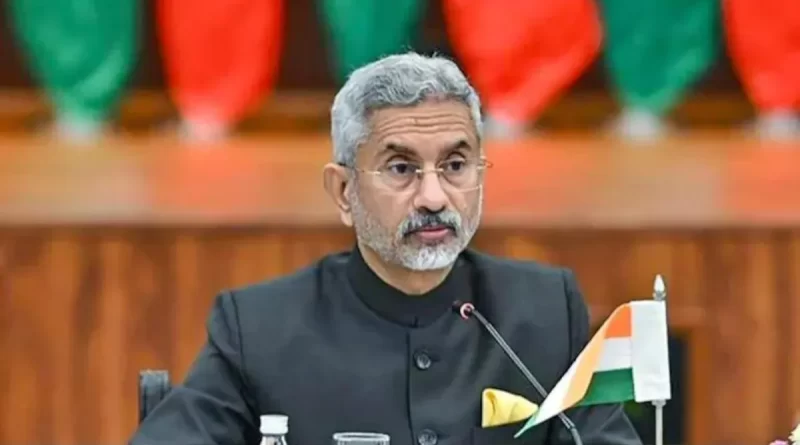‘Extremely difficult phase’: Jaishankar’s status check on India-China relations
India-Chinese relations are going through “a very difficult phase” because of Beijing’s actions on the border and it will be difficult to have the Asian century if the two countries do not gather, said Foreign Minister Jaisankar, Thursday. Jaisankar also defended India’s decision to buy Russian oil and the involvement of the country with Myanmar Junta after last year’s coup in facing what he called “double standards” and criticism from afar who did not take into account Indian priorities.
During interaction at the University of Chulalongkorn in Thailand, he said the relationship between China and India was largely dependent on how both parties could align their interests, and recall leaders of Deng Xiaoping China that the Asian century would occur when India and China united. “But the Asian century would be difficult if India and China did not gather. And one of the big questions today is the place of Indian-Chinese relations, “he said.
“Because at this time, the relationship was experiencing a very difficult phase because of what China had done in the last two years in our border area,” he said, referring to the military deadlock in the Ladakh sector from the actual control line (LAC) that the India had been associated with Chinese unilateral efforts to change the status quo.
Jaishankar’s statement was in contrast to the Chinese leadership statement about “the momentum of recovery” in relations when the Minister of External Affairs met with members of the Chinese State Council and Foreign Minister Wang Yi last month. Jaisankar also repeatedly said that in recent months that the overall relationship could not be normalized without peace and peace in the border area.
Responding to the question of India’s decision to buy Russian oil despite criticism from other countries, Jaisankar said there were various “judgment benchmarks” and even “double standards sometimes” about this problem. “We are not the only oil importer and … there are no sanctions for oil,” he said, adding that other countries and regions were “very good at talking” to this problem but had taken care of their own interests.
“I think it makes sense that we are also allowed to take care of our interests, especially because we are low -income people. For us, the increase in energy prices is very painful, “he said. India, the third largest energy consumer, has taken Russian crude oil discounts in recent months. Jaisankar said on Wednesday that India’s actions were intended to ensure the best agreement for its citizens in the midst of high energy prices and lacking.
“When people talk about what we should or do not have to do, we pay prices for this conflict in a very, very existential way,” he told the audience at the university. India’s concerns about energy costs, food inflation and deficiencies are distributed by many countries in Asia and Africa, he said. “This is completely unfair to people who struggle to get out of poverty to be expected to take a burden when countries with much higher per capita income have found a way to soften their own punch,” he added.
India’s actions, according to him, also helped bring more oil to the market and soften energy prices. India, said Jaishankar, was clear and not ambiguous that the only way out in the Ukraine conflict was back to dialogue and diplomacy. “At a certain stage, the protagonist must sit and speak,” he said, adding that Indian leadership had conveyed this position to Russia and Ukraine. “The faster you speak, the less bloodshed,” he said, noting that although there was Indian effort in this case, the call was ultimately carried out by the countries involved.



